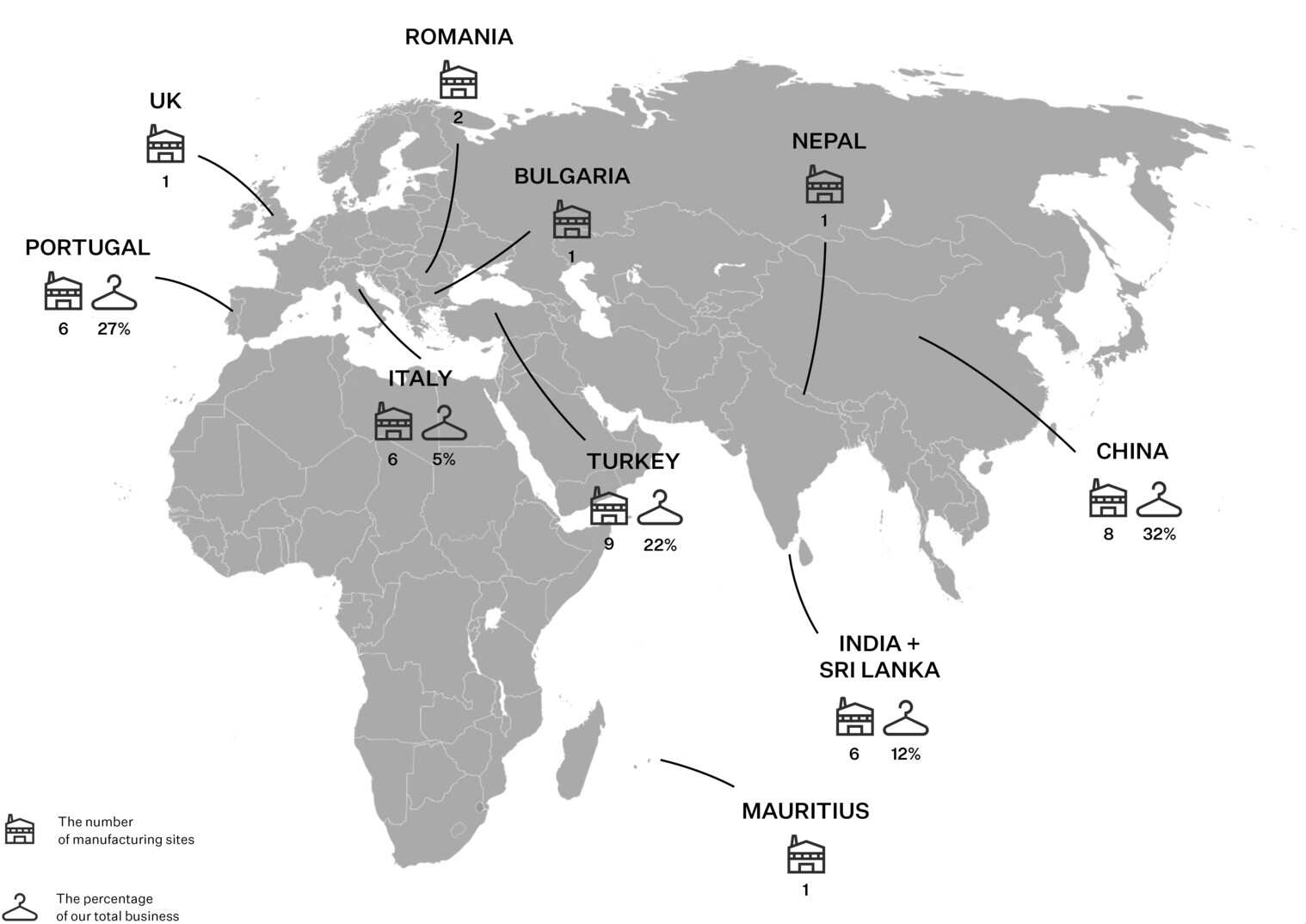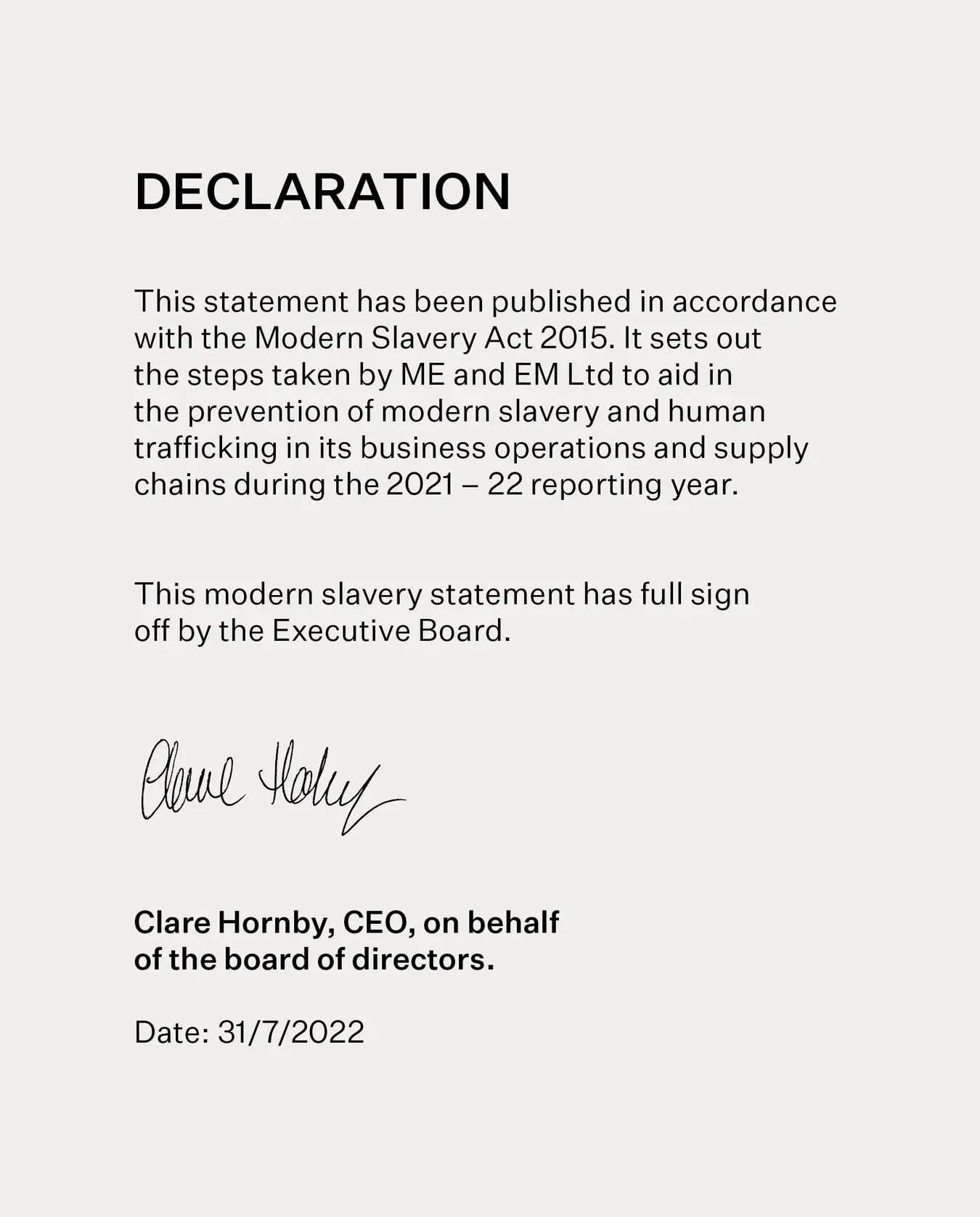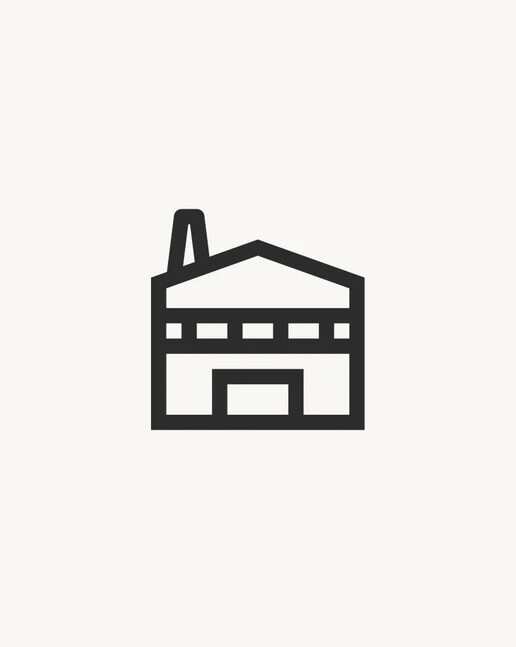MODERN SLAVERY STATEMENTS

What is Modern Slavery?
Walk FreeHuman trafficking is a process of bringing a person into a situation of exploitation through a series of actions, including deceptive recruitment and coercion.
Forced labour is any work or services which people are not doing voluntarily, and which is exacted under a threat of some form of punishment.
Bonded labour is demanded as a means of repayment of a debt or a loan.
Slavery is a situation where a person exercises (perceived) power of ownership over another person.
Whilst modern slavery exists in all sectors, we recognise that there are heightened vulnerabilities within our industry due to the complexity of supply chains and the labour practices within the industry and particularly in lower tiers of the supply chain. ME+EM does not tolerate any form of the above examples of modern slavery within our supply chains or direct relationships. We are actively committed to supporting our supply chain partners in the prevention and mitigation of modern slavery and through our own direct business relationships, as outlined in this statement.
The contents of this statement are aligned with the Home Office’s Statutory Guidance:
1 | Organisation structure and supply chains
- About us and our supply chain
2 | Policies in relation to modern slavery and human trafficking
- Our code of conduct and internal policies
3 | Due diligence processes
- Monitoring compliance of our policies and commitments
- Internal grading system and dashboard
4 | Key performance indicators to measure effectiveness of steps being taken
5 | Risk assessment and management
- Utilising membership tools to prioritise focus for remediation
6 | Training on modern slavery and trafficking
- Raising awareness and developing expertise
7 | Forward looking actions
- Looking ahead to 2022/23 objectives and areas of focus
1 | Organisation Structure and Supply Chains
OUR STORY
Over a decade ago, Clare Hornby founded ME+EM on three key pillars: flattering, functional, and forever. Clare identified a gap in the market for luxury quality, responsibly made garments, designed entirely in house, manufactured through direct relationships, and sold directly to consumers therefore avoiding markups attributed to third parties. We are proud to be the first modern luxury direct to consumer womenswear brand in the UK.
But as our brand, and the fashion industry, have evolved, the importance of ‘forever’ has gained an even greater sense of urgency. That’s why we’ve been working tirelessly behind the scenes to review every area of our business and reduce our impact. The result is more responsible decisions for our planet and for our people - from our customers, to our teams, and every person in our supply chains.
Collaborating with experts both in-house and externally, we have created a comprehensive roadmap to becoming the most socially and environmentally responsible brand we can be.
In recognition of our growth and commitment to positive change and accountability we have established a dedicated Corporate Social Responsibility (CSR) team who are responsible for delivering this roadmap in collaboration with the wider ME+EM teams and take ownership for monitoring modern slavery within its supply chain.
The operational and creative heart of the business is based in Notting Hill, West London. As a business we directly employ 163 individuals. We are a digitally native brand operating online internationally, complimented by 6 central London stores and 3 concessions sites in Selfridges London, Selfridges Manchester and Harrods London. We have a third party managed warehouse in Leeds, UK Our company registration is 05686460.
This modern slavery statement has full sign off by the Executive Board.
OUR SUPPLIER RELATIONSHIPS
We understand that transparency and traceability within our business relationships are crucial for us to understand where there could be vulnerabilities for occurrences of modern slavery and human rights abuses.
We categorise our relationships with suppliers as:
NON-STOCK
Suppliers who provide purchased services to support the operations of the business. These include logistics, printing, packaging, real estate, legal, warehousing and office facilities.
STOCK
Supply chains are integral to the manufacturing of our collections that includes production sites, trim providers, laundries, fabric mills and raw material producers.
Whilst all relationships are important we acknowledge that our stock suppliers require the focus of our attention to ensure there are no occurrences of modern slavery. We therefore strategically work with stock suppliers where we have a direct relationship and visibility of the site where our collections are being made. We acknowledge that the main production site represents one element of our wider chain and as such we have begun a comprehensive process to further map our stock supply chain as below. We will continue to map each tier as is aligned with our ethical road map and prioritisation of risk based on the suppliers location and nature of activity. Although modern slavery and human rights abuses can occur anywhere in the supply chain, they are more likely to occur in the lower tiers where there is less visibility.

WHERE OUR COLLECTIONS ARE PRODUCED

2 | Policies in relation to slavery and human trafficking
In order to ensure that our product suppliers understand our approach to compliance within our supply chain, including but not limited to our policies on slavery and human trafficking, we have a Corporate Social Responsibility policy which is regularly reviewed and sent to all suppliers. The contents of the CSR policy is something we require all product suppliers to comply with in order to be an approved ME+EM manufacturing partner.
In March 2022, we were proud to graduate to full membership of the Ethical Trade Initiative, an organisation dedicated to bringing about long-term change and respect for workers worldwide. As members of the ETI, we have adopted its internationally recognised base code of labour standards which is based on the standards of the International Labour Organisation (ILO) as the foundations of our own code of conduct, specifically relating to protecting and promoting workers' rights and the prevention of modern slavery. Suppliers must agree to this code of conduct as part of their contractual agreement when accepting ME+EM purchase orders. Our code of conduct states that employment must be freely chosen and that child labour must not under any circumstances be used, and this is included in our CSR policy.
In addition to our code of conduct we require suppliers to comply with our Forced Labour and Human Trafficking Policy. We identify Uzbekistan, Turkmenistan, Myanmar as banned countries where goods can be made, and in addition to this XUAR (Xinjiang Uyghur Autonomous Region) in China. Our Cotton sourcing policy outlines that sourcing is prohibited from Uzbekistan, Turkmenistan and Xinjiang. This is due to ongoing concerns of forced labour and violations of human rights.
We are also members of SEDEX, an organisation that helps companies improve their responsible and sustainable business practices. We require all our suppliers to be members of Sedex so that we have full transparency of their business operations and how workers are treated. This is achieved through a rigorous auditing framework and assessing sites to ensure workers rights are protected.
ME+EM follow a recruitment process for direct employees that involves appropriate due diligence on the right to work and appropriate supporting documentation. All employees directly employed by us receive training and a comprehensive handbook which outlines our policies on:
Whistleblowing Policy
Disciplinary Policy
Grievance Policy
Anti-Bribery + Corruption Policy
Modern Slavery + Human Trafficking Policy
Diversity, equality and inclusivity policy
This handbook is regularly updated and easily accessible through our human resources online platform.
In 2022 ME+EM were pleased to become an accredited Living Wage Employer. The real Living Wage is higher than the government’s minimum, or National Living Wage, and is an independently calculated hourly rate of pay based on the actual cost of living. Over 9000 organisations, including ME+EM, voluntarily choose to pay the real Living Wage because we believe that a hard day’s work deserves a fair day’s pay. This commitment applies not only to directly employed staff but also to our third-party non-stock contracted staff. (www.livingwage.org.uk/what-real-living-wage)
3 | Due diligence processes
SUPPLIER AUDITING
We are an engaged member of the Sedex community and use their globally recognised auditing methodology Sedex Members Ethical Trade Audit (SMETA) as the benchmark for monitoring and assessing our suppliers’ approach and performance to preventing human rights violations in their supply chains. SMETA 2-Pillar audits are governed by the standards contained in the Ethical Trading Initiative base code, specifically reporting on labour standards and health & safety. In some instances, suppliers will undergo SMETA 4-Pillar audits which include more extensive environmental management requirements as well as business practices. The auditing reports for our suppliers are held on the Sedex database which is also used as an interactive tool for suppliers to upload appropriate information that gives us greater visibility of their ethical practices. In the event that a supplier has an audit and non compliances are found, they are given a summary of the action required to resolve the noncompliance and a time frame in which to satisfy the auditors recommendations. All suppliers are required to acknowledge and confirm their agreement accordingly. All active ME+EM suppliers must provide visibility of an audit that must also be updated every two years. We have been working with our suppliers to conduct SMETA audits as our preferred auditing methodology. We are pleased that 86% have achieved this, including our top 10 manufacturing sites.
REPORTING
We have developed an internal reporting system to record the summary of each suppliers’ audit and highlight any noncompliance. For any non compliances found during their inspection the auditor provides a rating depending on the perceived criticality, we then consider this alongside our own high expectations and allocate a score that highlights the remedial attention required. The SMETA audit provides recommended time scales for non compliances to be resolved however we will request that a supplier takes faster action if we believe that workers are at potential risk.
This information is presented as a dashboard which is divided by supplier origin. This is important as we can easily see trends that can be endemic to certain countries and regions. The dashboard alongside a summary of priorities are emailed to the leadership team on a monthly basis.
WHISTLE BLOWING + GRIEVANCE MECHANISMS
For employees directly employed by ME+EM we provide a whistle blowing procedure in the employee handbook which explains how an employee can communicate their concern through internal escalation or contact details for an independent organisation where advice and support can be obtained.
In addition to this we provide contact details for a dedicated modern slavery helpline.
As part of our forward objectives we will be assessing grievance and whistleblowing mechanism options for our stock suppliers.
4 | Key performance indicators to measure effectiveness of steps being taken
To date we have not received any reports through our grievance mechanism or whistleblowing procedures from direct employees of ME+EM.
We achieved 100% audit visibility in 2022 for our active supplier base and we have not been informed or discovered any evidence of modern slavery through the auditing process. Over the course of the next financial year we will aim to set additional KPI’s to monitor the effectiveness of our modern slavery efforts. Such KPI’s will cover areas such as training and supplier engagement.
5 | Risk assessment and management
The CSR team have been focusing efforts on risk assessments for our stock suppliers as we have identified these supply chains at higher risk to modern slavery. Through the creation of our internal dashboard we can visibly see by county and region where our focus is required. For example, where independent worker representation is not evident, or recommended working hours are being exceeded, or homeworking could occur. In this instance we work with the supplier to remedy the situation.
Through our membership with the ETI we have engaged with issues that are endemic to certain countries and regions. For example, the vulnerability of displaced workers fleeing conflict in Syria and Ukraine. We have also updated our list of prohibited sourcing locations to include XUAR (Xinjiang Uyghur Autonomous region) China. We are also engaged with the Coalition to End Forced Labour in the Uyghur Region. This is an initiative in collaboration with Anti Slavery International.
As Sedex members we benefit from access to their risk assessment data across all our sourcing origins. This allows us to benchmark our supplier's performance against their overarching risk assessment scores taken from their broader data pool of members.
We are members of a cross industry multi stakeholder group that has been formed through ETI membership, and a desire to shape a more collaborative and transparent industry. We regularly attend meetings and share any insights with other brands and retailers on the wider subject of preventing human rights abuse. Most recently we were able to benefit from insights on the situations in Ukraine and Sri Lanka.
We acknowledge that greater visibility provides the tools for more robust risk assessments. As such we will be increasing our memberships to initiatives that provide transparency within our supply chain tiers, such as the Better Cotton initiative and the Leather Working Group. We will be exploring appropriate memberships in 2023 relating to our yarn sourcing.
The headlines from our auditing dashboard are cascaded to the leadership team on a monthly basis. In the event where evidence is found to suggest the violation of human rights the leadership team will be immediately informed and reported to the board of directors, with recommendations for appropriate remediation. We will prioritise the protection of the workers and take responsible action accordingly, in some instances this could be to terminate the commercial relationship however it could also better benefit the workers for us to engage with the supplier and offer support to remedy the situation and provide stability for the workers.
6 | Training & communication on modern slavery and trafficking
We have committed a significant amount of time and internal resource to update our stock supplier manual and policies which will be rolled out in July 2022. The manual highlights our zero tolerance approach to modern slavery and is an opportunity to engage suppliers with this subject.
As part of our forward looking actions and objectives we will be providing internal training through the organisation Slave Free Alliance and Sedex E learning platform. We will initially prioritise training for those functions directly involved with sourcing and liaising with product suppliers and then roll this training out to wider business functions.
Our website contains a dedicated CSR section that outlines our ethical processes and developments, this is regularly updated alongside our internal communications. In addition to this we regularly cascade information to our suppliers through updates to our supplier manual, CSR policy and performance updates.
We encourage open and honest dialogue, and as the product teams are able to resume travel after covid-19 we have included social compliance as a priority topic to be addressed during the trips. The CSR teams are responsible for providing the product teams with the suppliers most recent audit performance and highlight the areas of noncompliance to observe. Equally we celebrate successes where suppliers exceed the requirements to provide a safe and stable workplace for their workers.
2022-2023 AREAS OF FOCUS + OBJECTIVES




